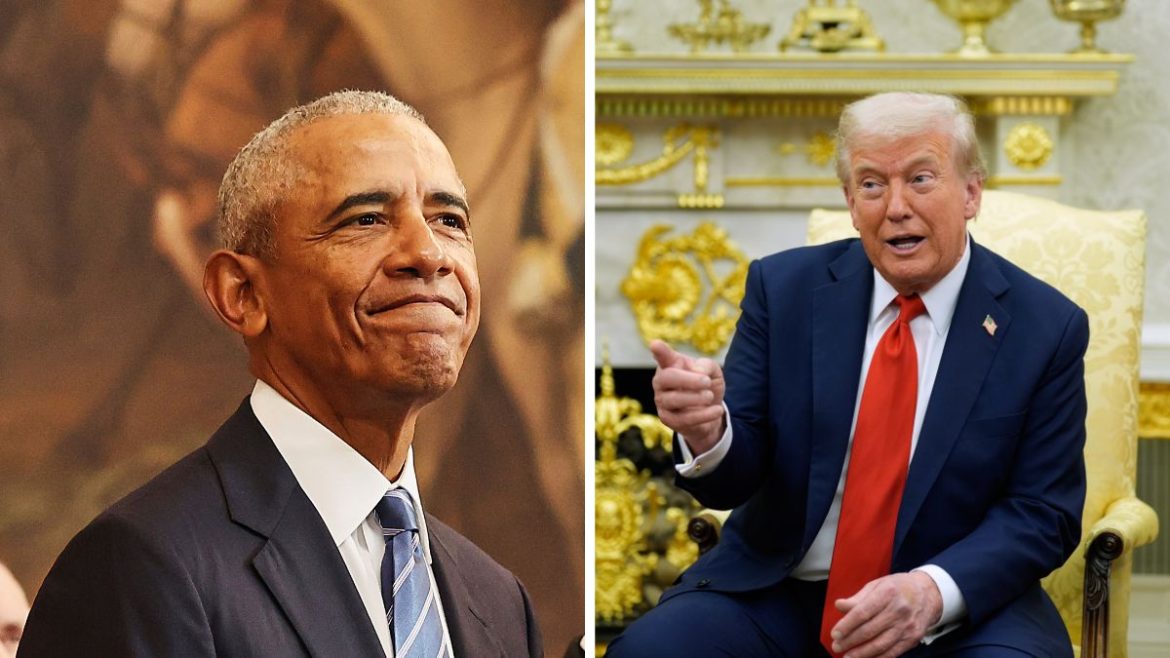Former U.S. President Donald Trump has once again criticized his predecessor, Barack Obama, over the awarding of the Nobel Peace Prize, questioning the basis for the honor and contrasting it with his own record on ending conflicts.
Trump Questions Obama’s Nobel Recognition
Speaking to journalists, Trump suggested that Obama received the Nobel Peace Prize despite having done little to merit it. “Obama got the prize, and even he doesn’t know why he got it,” Trump said, emphasizing that the award came just a few months into Obama’s presidency.
Trump expressed disappointment that the recognition seemed premature. “They gave him the prize while he was still figuring out what he was doing. He got the award, but he worked to undermine the country,” Trump asserted.
Unlike Obama, Trump claimed he did not seek awards for himself. Instead, he said, his focus was on achieving tangible goals. “I don’t work for prizes,” he said. “I work to get results. And I ended eight wars.”
Background: Obama’s 2009 Nobel Peace Prize
Barack Obama was awarded the Nobel Peace Prize in October 2009, just eight months after taking office. The Norwegian Nobel Committee cited his extraordinary efforts to strengthen international diplomacy and cooperation between peoples as the reason for the award.
The decision at the time sparked widespread debate. Critics argued that it was premature to honor a president who had not yet completed any major peacemaking achievements. Supporters countered that Obama’s emphasis on diplomacy, nuclear disarmament, and multilateral engagement represented a significant shift in U.S. foreign policy.
Trump’s Approach to Peace Efforts
During his own presidency, Trump repeatedly emphasized his role in brokering peace deals in conflict zones, a topic discussed in detail in our 2025 Nobel Peace Prize announcement coverage. He claimed to have ended eight wars, referring primarily to the reduction of U.S. troop involvement in regions such as Afghanistan, Iraq, and Syria, as well as facilitating diplomatic agreements in the Middle East.
His administration also sought to influence peace research institutions connected to the Nobel selection process. The Oslo-based peace research institute, which advises the Nobel Committee, noted Trump’s involvement in negotiating ceasefires, including efforts related to the Gaza conflict.
Nina Gregor, director of the institute, acknowledged Trump’s role in the ceasefire talks but cautioned that it was too early to judge whether his efforts would result in lasting peace. “Recognizing someone’s contribution to negotiations is different from guaranteeing sustainable outcomes,” she said.
Public and Political Reactions
Trump’s comments reflect a broader trend of comparison between his own record and that of previous presidents. His criticism of Obama is consistent with his long-standing narrative that his policies achieved more concrete results, particularly in foreign policy.
Political analysts note that the debate over Nobel Peace Prizes often involves both symbolic and practical considerations. “The committee sometimes awards leaders to encourage certain behaviors or signal global priorities, not necessarily to honor completed achievements,” said Richard Gowan, a U.N. policy analyst.
Meanwhile, Trump’s statements are likely to reignite discussions about what constitutes genuine peacemaking versus symbolic recognition. Observers highlight that while awards like the Nobel Peace Prize carry global prestige, the actual impact of a leader’s policies is subject to complex, long-term evaluation.
Looking Ahead
As debates continue over the effectiveness and timing of international awards, both Trump and Obama remain central figures in discussions of U.S. foreign policy achievements. Trump’s comments underscore ongoing political tensions and the contested narratives surrounding presidential legacies.
The conversation also raises broader questions about how the international community recognizes diplomacy and peace efforts, and whether awards should honor intentions, early initiatives, or measurable outcomes.















